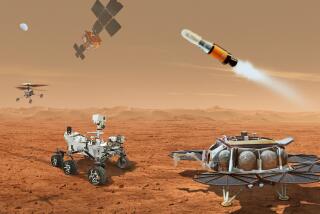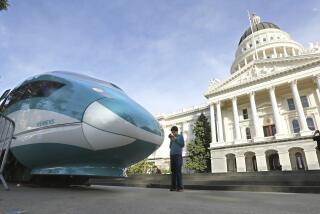A Deadline That Should Be Missed
- Share via
The failure of the latest $100-million test of the proposed national missile defense (NMD) system sends a clear message. It’s time to forget about the arbitrary deadline set for starting work on this hugely expensive and technologically dubious project, remove it from the distorting political atmosphere of the presidential campaign and reassess whether it would be the most effective way to counter potential missile threats from hostile states.
The rush to develop a missile defense is driven largely by an arguable intelligence estimate that North Korea could within five years have a missile capable of striking parts of the United States. From that projection much follows.
If an antimissile system is to be ready by 2005, work must begin next spring on a high-power radar station on a remote Aleutian island where weather conditions limit building activity. Before construction starts, contracts must be let, requiring a go-ahead from President Clinton in November. Clinton’s decision awaits a report next month from Defense Secretary William S. Cohen on NMD’s cost and technical feasibility. Clinton will also weigh assessments by the State Department and intelligence agencies on how NMD would affect arms control agreements and relations with U.S. allies as well as China and Russia--in short, on how destabilizing to international relations the system might be.
NMD’s ultimate projected cost is $60 billion, which may prove conservative. Obviously it makes no sense to begin deploying a system until there’s solid evidence it will work. Neither does it make sense to ignore the lessons of the recent past. What protected the United States from attack through decades of cold war wasn’t its antimissile system--none existed--but the certainty of massive retaliation. That deterrent remains, whether the threat comes from North Korea, Iraq, Iran, Russia or China.
The most prudent thing Clinton can do is leave a decision on NMD to the next president. The soundest thing the next president can do is explore more feasible alternatives, especially a sea-based system capable of destroying hostile missiles just after they are launched, instead of a system that tries to intercept incoming warheads in deep space. Congress mandated NMD in a fit of wishful thinking, without fully considering the enormous technical impediments to be overcome or the global political consequences that deploying a system could invite. What Congress forgot is that a national security policy based on illusion offers no security at all.
More to Read
Sign up for Essential California
The most important California stories and recommendations in your inbox every morning.
You may occasionally receive promotional content from the Los Angeles Times.













